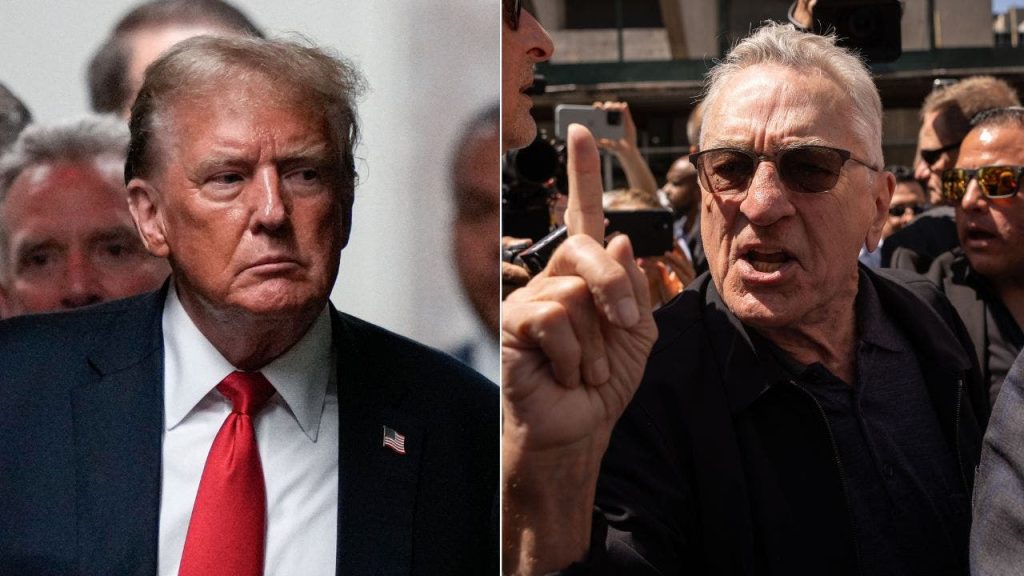Former President Trump criticized actor Robert De Niro as “pathetic” and a “wacko” following De Niro’s chaotic conference outside a Manhattan courthouse. Trump took to Truth Social to ridicule De Niro, who has been vocal in his opposition to Trump for years. De Niro claimed that Trump wants to destroy the city, the nation, and eventually the world. Trump mocked De Niro’s physical and mental stature and suggested that his value as an actor has decreased since entering the political arena.
Conservatives likened De Niro’s press conference, which was disrupted by hecklers and a car alarm, to a scene from the TV show “Veep.” De Niro expressed his disdain for Trump, stating that Trump doesn’t belong in New York City. The actor was joined by the Biden campaign’s communications director, Michael Tyler, who called Trump a “chaos agent.” Former law enforcement officers present during the Capitol riot criticized Trump’s conduct and deemed him unfit for office.
Following the remarks, De Niro was heckled by Trump supporters as he left the podium, engaging in a shouting match with one individual. The Trump campaign held a separate press conference on the same day, with senior adviser Steven Cheung denouncing the Biden campaign’s press conference as “election interference.” Cheung accused Biden and his team of being in a state of panic. The back-and-forth between the two campaigns highlighted the deep political divide in the country.
Trump’s criticism of De Niro and the chaos at the press conferences underscore the ongoing tensions between Trump supporters and his opponents. De Niro’s impassioned speech against Trump and the presence of former law enforcement officials critical of the former president’s actions served as a reminder of the divisiveness in American politics. The confrontations between supporters of both camps indicate the intense emotions and stark differences in beliefs that continue to persist in the country.
The public altercation between De Niro and Trump supporters, as well as the heated exchanges between campaign officials, exemplify the polarizing nature of politics in the United States. De Niro’s strong statements against Trump, paired with the criticism from former law enforcement officers, highlight the deep-seated animosity towards the former president among some segments of the population. The responses from both campaigns reflect the ongoing political battles and the fervent opposition to each other’s ideologies.
The clash between Trump and De Niro, along with the broader confrontation between their respective supporters and campaigns, serves as a microcosm of the broader political landscape in the United States. The divisions and animosities evident in these events underscore the challenges facing the country as it navigates through a period of intense political polarization. The ongoing feuds and confrontations between prominent figures and their followers reflect the deep-seated ideological differences that continue to shape American society.













